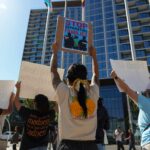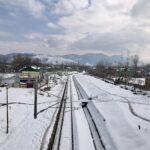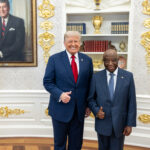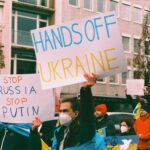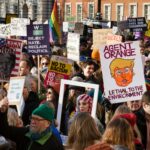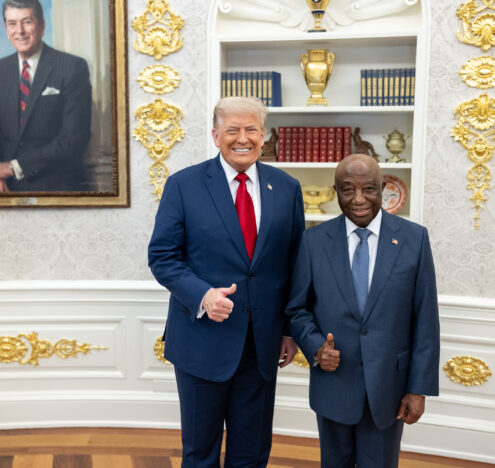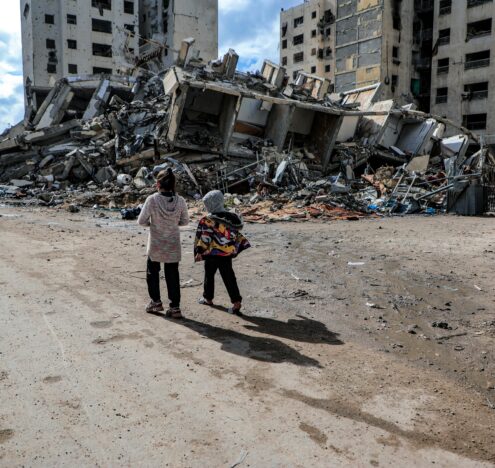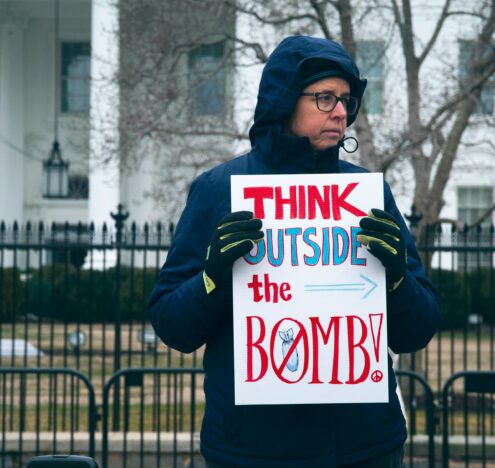Handshakes, negotiations, and PotCoin, oh my! We asked five key experts to weigh in on what just happened in Singapore.
Was the Trump-Kim summit a success? Here’s what they had to say.
ALEX BELL // The devil is in the details
The principles outlined in joint statement are reiterations of previous public lines and there is a commitment to commence technical talks. That’s good. Of course, as with all things, the devil is in the details. A verifiable disarmament treaty will be a hard-fought achievement and both sides will have to bend. In an interview with ABC News just after the Summit, President Trump said that the United States will end “those war games that cost us a fortune.” The President is referring to our extended deterrence military exercises with our allies South Korea and Japan. The cessation of those exercises is certainly a bend. In fact, it’s a huge concession to the North Koreans and it’s unclear what the exact reciprocal action will be. Further, the tone with which he referred to the exercises is another in a now-long string of puzzling statements in which the president seems to overtly disrespect the mutually-beneficial structures and processes we and our allies have spent years building.
On a less serious note, in reading the ABC interview, I almost did a spit take when I saw this exchange:
G: [John Bolton] says, how do you know Kim Jong Un is lying, his lips are moving?
T: By the end of that conversation, it was good. I think they have a good trust.
I am sure Ambassador Bolton was thrilled with that assessment.
Even with positive momentum coming out of the summit, I am concerned that the president and his administration is
setting an almost impossibly high bar for this process and is not relying on the full complement of experts available to them.
I recently asked a senior government official about who would be running the process of negotiating a new nuclear deal with Iran. The response was, “Secretary Pompeo.” By my count, that’s two extremely complicated nuclear negotiations for a man with no fulsome diplomatic experience or specialized nuclear policy background.
It’s my hope that the administration will unleash its technocrats and buckle down for the complicated process ahead of us.
Alexandra Bell is the Senior Policy Director at the Center for Arms Control & Non-Proliferation, where she focuses on national security issues in Congress, nuclear arms control, foreign policy, Pentagon spending, and other areas of peace and security.
KELSEY DAVENPORT // It’s far too soon to know
The document Trump and Kim signed is a mediocre reiteration of North Korea’s past commitments to denuclearize. It is evident from the onset that Trump was going to call the meeting a success, irrespective of the outcome. But it is far too soon to characterize this vague, aspirational pledge as a victory or a failure. The critical question is what comes next?
North Korea may have committed to ‘complete denuclearization of the Korean peninsula,’ at the summit, but there is no indication yet that Kim Jong Un has made the decision to give up North Korea’s nuclear weapons or take steps to roll back nuclear activities. There is a real risk that he will pocket his meeting with the US president as a political win and drag his feet on further steps to halt and roll back his nuclear and missile programs.
However, it is possible that the commitment made by the United States and North Korea to hold follow-on negotiations could jump-start a meaningful process with concrete steps toward denuclearization. That would be a positive outcome. Follow-on negotiations should focus on closing the gap between the United States and North Korea on the definition of denuclearization and laying out specific, verifiable steps that Pyongyang will take to reduce the threat posed by its nuclear weapons. Even if these steps fall short of North Korea relinquishing its nuclear weapons, halting and rolling back North Korea’s nuclear and missile programs in a verifiable manner would benefit US national security and stabilize the region.
It is the steps that follow — or lack thereof — that will determine if this meeting was a success or failure.
Kelsey Davenport is the Director for Nonproliferation Policy at the Arms Control Association, where she provides research and analysis on the nuclear and missile programs in Iran, North Korea, India, and Pakistan and on nuclear security issues.
MELISSA HANHAM // Trump has accomplished nothing
What has the summit achieved?
As expected, the bar for the summit was very low. Kim Jong Un advanced his goals of becoming a respected world leader while giving away nothing in terms of his WMD program, human rights abuses, and other criminal state behavior. Donald Trump was able to change the news cycle from the debacle of the G7.
Is it likely to lead to the denuclearization of NK?
No. North Korea has promised to “denuclearize” “The Korean Peninsula” since the early 1990s. If Trump thinks this means he’s unilaterally giving up nuclear weapons, then he’s headed towards a rude surprise. I don’t know how long the summit process will last, but eventually, Trump or Kim will claim the other is a bad actor, and it will be back to square one (except they have nuclear weapons, and can continue to make more). Not only did the document have exactly no mechanism for the dismantlement of nuclear weapons, but also no timeline, and they only committed to “work towards” a watered down version of CVID.
How difficult will that process be?
Very difficult. Trump accomplished basically nothing, elevated a two-bit dictator, set up a precedent for other two-bit dictators to get nuclear weapons, and used his political capital with those who want human rights and religious freedom in North Korea. Every single line of the document fell short of what was promised by either Bolton or Pompeo. Every single line of the document fell short of the Iran Deal, which Trump violated last month.
Kim has only partially dismantled his nuclear test site. If anything, that means it could take some time for him to test new nuclear weapons designs, but honestly, he doesn’t need to. Kim gave away nothing in regards to the dozens of warhead he has, the ability to make more weapons of the same design, the ability to produce more fissile material to make more warheads, and the ability to make more nuclear-capable short-, intermediate-, or intercontinental missiles to launch the nuclear warheads. If anything, Kim has just bought himself some more time and prestige to grow his economy while mass producing the weapons we don’t want him to have in the first place.
What are the next steps?
The world has to start taking these matters seriously. It’s hard to tangibly recognize the threat of nuclear weapons in the hands of Kim Jong Un, but it is there. Trump calls him very talented, and I do too, but it’s a dangerous macabre talent. He has thousands of people in forced labor camps, he had his half-brother murdered in an international airport with chemical weapons. He cares only about the protection of his own regime. I believe he absolutely would use nuclear weapons if he felt he was threatened. The consequences would be global.
The best use of our time now is to invest in the technical and logistical mechanisms for eventual disarmament, not just in North Korea, but also with Russia, the US, and other weapons states, continue to build political will to move towards disarmament, and be ready to seize the moment when we actually get there. Unfortunately, this was not it.
Melissa Hanham is a senior research associate at the James Martin Center for Nonproliferation Studies (CNS), as well as the Mixed-Methods, Evaluation, Training &Analysis (META) Lab of the Middlebury Institute in Monterey, California.
ANKIT PANDA // Future rounds of negotiation will be more challenging
The Singapore declaration saw North Korea give the United States an inch while Washington gave Kim Jong Un a mile of legitimizing runway. The language on denuclearization, in particular, is remarkably thin, building off the vague “complete denuclearization” language found in the April 27 Panmunjom declaration. This isn’t surprising, but the outcome of this summit is poised to make future rounds of diplomacy with North Korea aimed at disarmament more challenging and also effectively closes the book on Trump’s maximum pressure campaign.
Ankit Panda is an editor at The Diplomat. He writes on security, politics, economics, and culture.
JENNY TOWN // We still don’t know much
To be honest, it is still ambiguous as to what was actually agreed to on a working level. The declaration itself lacks any such detail and only reiterates long-standing goals on denuclearization and peace, and a commitment to having a different, presumably better relationship. During the press conference, is when mention of specific measures were discussed, but of course, it is hard to verify based on the press conference itself.
Both sides walked away from this summit with enormous publicity for their efforts. This will play well for both Trump and Kim to their domestic constituents. However, the substance of the meeting is unclear, at best. It is encouraging to see a diplomatic process move forward, and granted, high-level commitment from both parties can possibly be the catalyst needed to take the process further than where we have been able to get before. But it will still be a negotiation and Kim Jong Un’s diplomatic debut over the past few months, culminating in his incredible reception in Singapore, increases North Korea’s confidence and negotiating power. While it is welcome that we are moving away from a warpath, the jury is still out on whether the Trump administration has the political will and prowess to sustain this process and actually take the negotiation past broad commitments to implementable measures.
Jenny Town is the Managing Editor and Producer of 38 North, a web-journal providing analysis of events in and around the DPRK–from social evolution to political developments to WMD.


